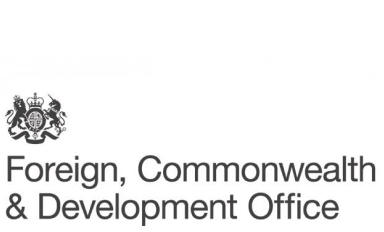As the construction industry continues to evolve and increasingly embraces digitisation, an early-stage project deliverable for Build Digital was to conduct a horizon scan of the opportunities available for those within the construction sector. A primary aim, therefore, is to provide a comprehensive inventory of educational and training provisions that exist within Ireland at present. The resulting inventory focuses on key educational sectors, including Universities, Educational Training Boards (ETBS), Colleges of Further Education, Professional bodies, and similar organisations. There are in excess of 300 entries on the inventory.
https://www.builddigitalproject.ie/education-training-inventory
This inventory was developed as a tool for identifying relevant standards and, in particular, their relevance to Build Digital. Each document found in this research was recorded, reviewed, and graded based on the scoring system created for this report and tool. This tool is intended to be flexible should new standards be published, or a change is required to an existing standard. There are in excess of 120 entries on the inventory.
https://www.builddigitalproject.ie/bim-standards-and-supports-inventory
The report presents recommendations for Build Digital with respect to information management and the use of BIM as a critical vehicle of innovation to unlock improved project outcomes in construction. The focus on addressing the information challenge is evident in the UK government’s publication of nternational information management standards in 2018 and the recent introduction of an information management mandate.
https://www.builddigitalproject.ie/international-information-management-review
A colloquium is a conference where high-level discussions take place between experts in relation to a topic of importance. The event typically has a questions and answers period and is followed by the compilation of a document which details the discussions that took place. Chatham House Rules apply, meaning any discussions, other than formal presentations, will not be attributed to the contributor. The purpose of the Build Digital Industry Colloquium is to better align the project with the needs of the industry and to identify the benefits expected for the industry from the future work of the project. To ensure a diverse representation, Build Digital approached the Construction Industry Council (CIC) to invite participants from CIC representative bodies
https://www.builddigitalproject.ie/industry-colloquium-report
Repository of BIM standards and guidelines
With the aim of understanding the degree of progress in the implementation of BIM in Latin America and the main actions that have been carried out, CAF—development bank of Latin America—promoted the development of a survey of information on this methodology. in the region. This survey includes a diagnosis of the progress of BIM implementation at the national level in different countries in Latin America and the Caribbean. It is important to highlight that this diagnosis presents the specific state of progress of the period of its development, between January and May 2022, so, at the time of reading, it may not coincide in some aspects with the current situation of the countries.
State institutions in different countries in Latin America and the Caribbean have begun to implement BIM, in order to more accurately calculate the costs and times of the projects, as well as generate more fluid communication between the different actors involved. increasing the efficiency and transparency of processes. Internationally, a series of cases demonstrate the benefits of implementing BIM. Among them, one in the United States where, after its implementation in 32 projects, it identified: i) a 7% reduction in time, ii) a 10% reduction in costs through early detection of interference, iii) ) the elimination of 40% of the changes not considered, and iv) and the reduction of 80% of the time for cost estimation. The Physical Infrastructure and Digital Transformation Management generated this guide with the objective of promoting knowledge about the implementation of the BIM methodology in the public sphere. It explains what BIM is, identifies the minimum steps for its implementation in a public institution, and provides simple tools for public officials to integrate it into their institutions.
This document indicates how information management aligned with ISO 19650 will be carried out on the Aeropuerto del Café project.
The BIM Fundamentals document is part of the reference documentary framework for the “Plan for the incorporation of the BIM methodology in public procurement of the General State Administration (AGE)” that the Interministerial Commission is producing.
https://cvp.mitma.gob.es/fundamentos-bim-para-la-contratacion-publica-2
Approval of PlanBIM and the gradual introduction of mandatory BIM requirements on Public procurement from 2024
https://boe.es/boe/dias/2023/07/20/pdfs/BOE-A-2023-16784.pdf


